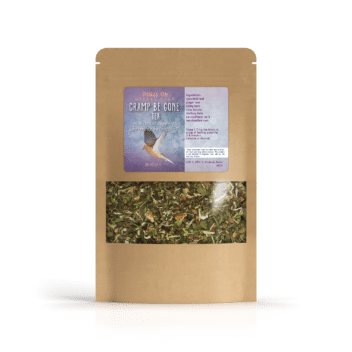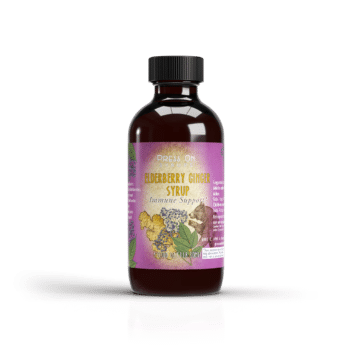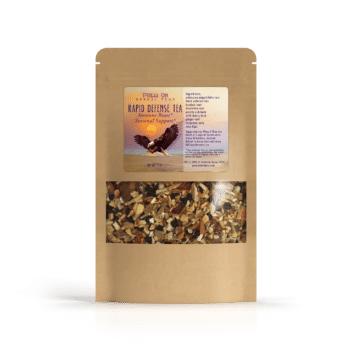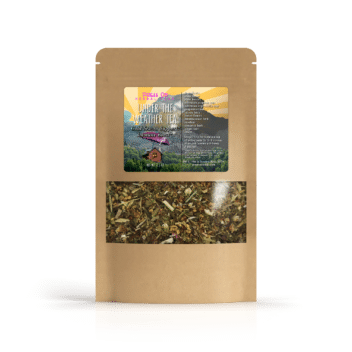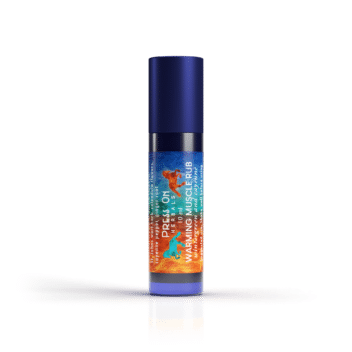Ginger Root in Herbal Medicine
Ginger root, an essential ingredient in culinary traditions worldwide, transcends its role as a flavorful spice to become a formidable component in herbal medicine. This knobby root, revered for centuries, is a powerhouse of health benefits, offering relief from a range of ailments such as digestive issues and inflammation. In this expanded article, we delve deeper into the health benefits of ginger, its historical and cultural uses in traditional medicine, and explore practical ways to integrate it into your daily routine for a healthier lifestyle.
The Health Benefits of Ginger
Digestive Aid
Ginger is a celebrated digestive aid, renowned for its capacity to enhance gastrointestinal health. The root contains active compounds, gingerols, and shogaols, which stimulate saliva, bile, and gastric juices, facilitating the digestive process. This stimulation ensures that food moves smoothly through the digestive tract, reducing discomfort and promoting nutrient absorption. When people reach for ginger ale or ginger tea to soothe an upset stomach, they’re harnessing this natural digestive prowess.
Moreover, ginger’s role in alleviating symptoms of dyspepsia, which includes bloating and discomfort after meals, is well-documented. By promoting efficient digestion, ginger helps reduce the formation of gas in the gastrointestinal tract, providing relief from bloating. This makes it an excellent natural remedy for individuals struggling with chronic digestive issues.
Lastly, ginger may also play a preventative role in digestive health. Regular consumption can contribute to maintaining a balanced gut microbiome, which is essential for overall health. A healthy gut is linked to improved immune function and even mental well-being, underscoring the importance of incorporating ginger into your diet.
Anti-Inflammatory Properties
Ginger’s anti-inflammatory properties are one of its most significant contributions to herbal medicine. The root’s gingerols can suppress the synthesis of pro-inflammatory cytokines, which are chemicals in the body that contribute to inflammation. This makes ginger an effective natural remedy for conditions characterized by inflammation, such as arthritis, osteoarthritis, and even chronic pain syndromes.
In addition to alleviating joint pain and swelling, ginger may also offer protective benefits against inflammatory diseases. By reducing chronic inflammation, which is at the root of many serious health conditions, including heart disease and diabetes, ginger can be a valuable ally in disease prevention. Its role in modulating inflammatory pathways highlights its potential as a complementary treatment in managing these conditions.
Furthermore, incorporating ginger into your diet may enhance recovery from exercise-induced muscle soreness. Athletes and fitness enthusiasts often use ginger to speed up recovery and reduce muscle pain after intense workouts. This natural approach to managing inflammation aligns well with a holistic wellness strategy.
Nausea Relief
Ginger’s efficacy in relieving nausea is backed by both traditional use and scientific research. It has been used for centuries to combat nausea and vomiting, particularly during pregnancy. Pregnant women suffering from morning sickness can find relief with small amounts of ginger, which helps settle the stomach and reduce nausea symptoms.
Beyond pregnancy, ginger is also effective in alleviating nausea related to motion sickness and chemotherapy. Its ability to calm the stomach and reduce the urge to vomit makes it a popular choice for travelers and patients undergoing medical treatments. Ginger’s role in supporting the body’s natural mechanisms to combat nausea highlights its versatile therapeutic potential.
Moreover, ginger’s ease of use makes it an accessible remedy for nausea. Whether consumed as ginger tea, added to meals, or taken in supplement form, its anti-nausea effects are readily available to those in need.
Immune System Boost
The immune-boosting properties of ginger make it a staple in the arsenal of natural remedies. Rich in antioxidants, ginger helps protect the body from oxidative stress caused by free radicals. These antioxidants enhance the body’s defense mechanisms, potentially reducing the risk of chronic diseases and supporting overall health.
Regular consumption of ginger can also enhance the body’s ability to fight off infections. Its antimicrobial properties can help ward off pathogens, making it a valuable ally during cold and flu season. Ginger’s warming nature is believed to promote circulation and sweat production, further supporting immune function.
In addition to its direct effects on the immune system, ginger’s role in improving digestive health indirectly supports immunity. A healthy gut, facilitated by ginger’s digestive benefits, is crucial for a robust immune response. This holistic approach to wellness underscores the interconnectedness of body systems and the importance of natural remedies like ginger.
Traditional Uses of Ginger in Herbal Medicine
In Ayurvedic Medicine
In Ayurveda, the ancient holistic healing system from India, ginger is hailed as a universal medicine. Known as “Vishwabheshaja,” or the medicine for all, ginger is believed to ignite the digestive fire, or “agni,” which is crucial for maintaining health and vitality. It is used to balance the body’s three doshas: Vata, Pitta, and Kapha, ensuring harmony and equilibrium within the body.
Ginger tea is a common Ayurvedic remedy for colds, coughs, and sore throats. Its warming properties are thought to help expel cold and dampness, promoting warmth and circulation throughout the body. This makes it particularly beneficial during the cooler months when respiratory ailments are more prevalent.
Additionally, ginger is employed in Ayurveda for detoxification and cleansing. Its ability to stimulate digestion and circulation aids in the removal of toxins, or “ama,” from the body. By supporting the body’s natural detox processes, ginger helps maintain health and prevent disease.
In Traditional Chinese Medicine
In Traditional Chinese Medicine (TCM), ginger is valued for its warming and invigorating qualities. It is often used to treat conditions associated with coldness in the body, such as cold extremities, chills, and certain types of digestive disturbances. Fresh ginger is considered a warming herb that can help balance the body’s internal climate.
Ginger is also used in TCM to strengthen the stomach and spleen, two organs essential for digestion and energy production. By supporting these organs, ginger enhances the body’s ability to extract energy from food, contributing to overall vitality and well-being.
Moreover, ginger’s role in TCM extends to respiratory health. Its warming properties help to disperse wind-cold invasions, making it a go-to remedy for the early stages of colds and flu. By promoting sweating and circulation, ginger helps the body expel pathogens and recover more quickly from illness.
In Western Herbal Medicine
In Western herbal medicine, ginger is celebrated for its digestive and anti-nausea properties. Herbalists often recommend ginger for its warming and stimulating effects, which promote circulation and improve overall vitality. Its use in alleviating nausea, particularly during travel and pregnancy, is well-documented and widely accepted.
Ginger is also utilized in Western herbal medicine for its anti-inflammatory and pain-relieving effects. It is often incorporated into remedies for arthritis, joint pain, and muscle soreness, offering a natural alternative to conventional pain medications. The root’s ability to modulate inflammation and support circulation contributes to its effectiveness in managing pain.
Furthermore, ginger’s versatility in Western herbal medicine is evident in its diverse applications. From digestive health to immune support and pain relief, ginger is a cornerstone of natural remedies, embodying the holistic approach of herbal medicine.
How to Use Ginger in Your Daily Routine
Fresh Ginger
Fresh ginger root is a versatile ingredient that can be easily incorporated into a variety of dishes. Grating fresh ginger into stir-fries, soups, and marinades not only enhances the flavor but also infuses meals with health benefits. This culinary approach allows you to enjoy ginger’s digestive and immune-boosting properties in a delicious and natural way.
For those seeking a simple digestive aid, ginger tea is a fantastic option. By steeping sliced ginger in hot water, you create a soothing beverage that can be enjoyed at any time of day. Ginger tea is particularly beneficial after meals to aid digestion and promote relaxation.
Moreover, fresh ginger can be used in smoothies, juices, and even desserts. Its spicy, aromatic flavor complements a wide range of ingredients, making it a delightful addition to both sweet and savory dishes. Experimenting with fresh ginger in your cooking can lead to new culinary discoveries and improved health.
Dried Ginger
Dried ginger powder offers a convenient and concentrated form of this powerful root. Ideal for baking, dried ginger can add warmth and spice to cookies, cakes, and bread. Its intense flavor means you need less of it to achieve the desired taste, making it a cost-effective option for regular use.
In addition to baking, dried ginger can be sprinkled into smoothies, oatmeal, and yogurt for an extra kick of flavor and health benefits. Its concentrated form retains the digestive and anti-inflammatory properties of fresh ginger, providing a potent boost to your daily routine.
Moreover, dried ginger can be used to make ginger tea or added to homemade spice blends. Its versatility and long shelf life make it a pantry staple for anyone looking to incorporate ginger into their diet regularly.
Ginger Supplements
For those who prefer a straightforward approach, ginger supplements offer a convenient way to enjoy the root’s health benefits. Available in capsules, tablets, and tinctures, these supplements provide a standardized dose of ginger, making it easy to target specific health concerns such as inflammation or nausea.
Ginger supplements are particularly beneficial for individuals with busy lifestyles who may not have time to prepare fresh ginger daily. They offer a reliable and consistent source of ginger’s active compounds, ensuring you receive its therapeutic benefits even on the go.
Additionally, ginger supplements can be part of a broader wellness strategy, complementing other natural remedies and healthy lifestyle practices. Consulting with a healthcare professional can help you determine the right dosage and form for your needs.
Precautions and Considerations
While ginger is generally safe for most people, it’s important to use it wisely and be aware of potential side effects. High doses of ginger can cause mild side effects such as heartburn, diarrhea, and stomach upset. To minimize these risks, it’s advisable to start with small amounts and gradually increase your intake as your body adjusts.
Pregnant and nursing women should exercise caution when consuming ginger, as its effects can vary depending on individual health conditions and sensitivities. Consulting with a healthcare professional can provide personalized guidance and ensure the safe incorporation of ginger into your diet.
Additionally, individuals taking medications, particularly blood thinners or diabetes medications, should consult with their healthcare provider before adding large amounts of ginger to their routine. Ginger can interact with certain medications, potentially affecting their efficacy or increasing the risk of side effects.
Conclusion
Ginger root is a remarkable herb with a rich history of use in traditional medicine across cultures. Its diverse health benefits, from aiding digestion to reducing inflammation and boosting immunity, make it an invaluable addition to any wellness routine. Whether you prefer incorporating fresh ginger into your cooking, enjoying ginger tea, or taking supplements, there are numerous ways to harness the power of this potent spice. By embracing ginger’s natural properties, you can enhance your health and well-being, tapping into the wisdom of herbal medicine for a more balanced and vibrant life.


